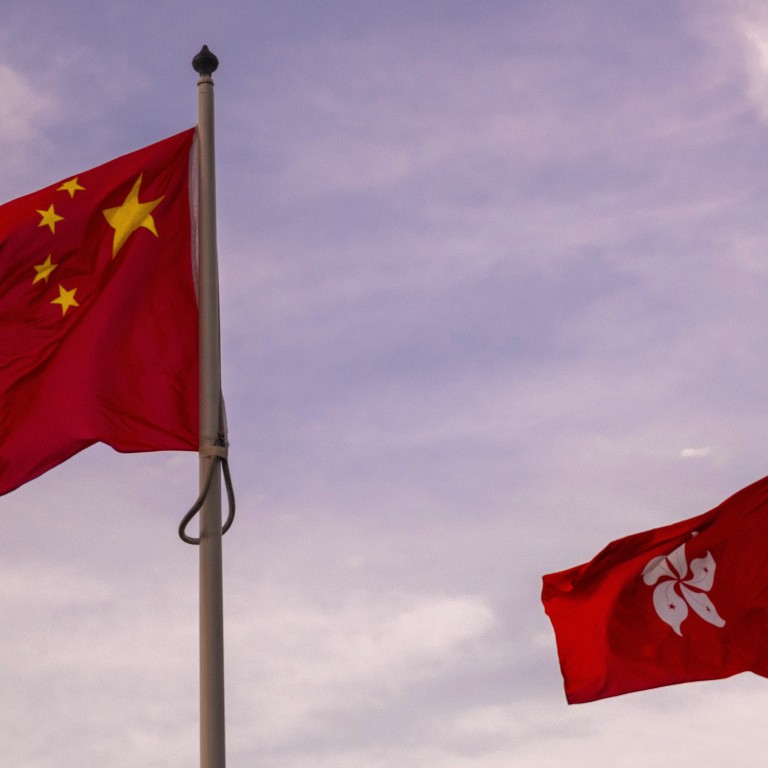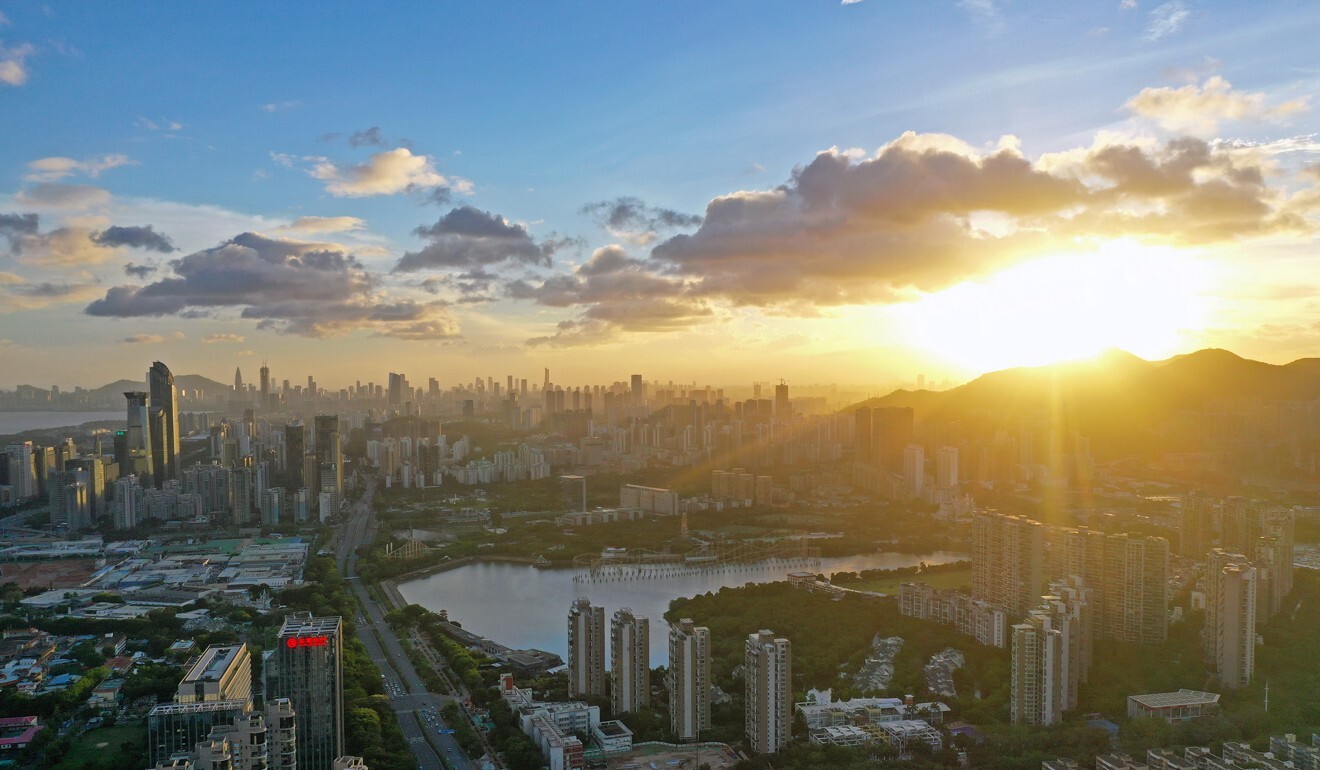
Explainer | Hong Kong’s role in annual Central Committee meeting has varied over the years, but much could hinge on what emerges from 2020 edition
- Questions about city’s function in Greater Bay Area plan – and broader national agenda – hover as Communist Party plenum wraps on Thursday
- While Carrie Lam now actively pushes for Hong Kong role in country’s five-year plan, local leaders were once happy to keep their distance
The 200-plus-member Central Committee, the party’s top decision-making body, opened its fifth plenum with President Xi Jinping delivering a work report, a draft five-year plan and a document outlining China’s long-term objectives through to 2035.
The draft that emerges from the meeting, which takes place annually, is expected to be formally approved by the National People’s Congress in March.
What is the agenda of the fifth plenum?
The fifth plenum is expected to issue a communique after it wraps on Thursday. Knowledgeable sources said drafts of the five-year plan, which sets out key economic and political goals for the 2021-2025 period, as well as more long-term objectives would be released in the coming weeks. It will also spell out the roles played by Hong Kong and Macau in the nation’s economic development.
The future direction of the international financial hub was thrown into doubt last week when President Xi called on Shenzhen to become an important “engine” of the Greater Bay Area.

What is the plenum’s significance for Hong Kong specifically?
While national issues usually top the agendas of the Central Committee’s plenums, Hong Kong affairs have been mentioned on several occasions since 2004.
In September of that year, a document adopted by the fourth plenum of the 16th party congress stressed that maintaining the long-term prosperity and stability of Hong Kong and Macau was a “brand-new subject”.
The document also underscored the need to improve the local administration’s ability to govern in light of new social circumstances, coming in the wake of the July 2003 protest that saw 500,000 Hongkongers take to the streets over a proposed national security bill. The legislation was ultimately shelved amid the resistance.
China’s leaders start charting course for next five years in major policy meeting
In response to the central government’s call for improved governance, then chief executive Tung Chee-hwa announced two weeks later that ministers were to begin taking the public’s pulse by visiting districts and joining radio phone-ins, then bringing the issues raised before policymaking bodies when appropriate.
Almost a decade later, the 18th party congress’ third plenum in November 2013 mentioned the need for broadening cooperation among Hong Kong, Macau and Taiwan.
Then, in October 2015, the party pledged to boost Hong Kong’s role in China’s economic development and opening up to the outside world.
Promoting democracy, supporting economic development and facilitating social harmony in Hong Kong and Macau were highlighted as major tasks in the document presented at that fifth plenum.
The message came four months after Hong Kong lawmakers voted down a Beijing-proposed model for reforming the 2017 chief executive election.
The document also once again emphasised the importance of cooperation between the mainland, Hong Kong, Macau and Taiwan, and called for enhancing the role of Hong Kong and Macau in the country’s economic development.

How has Hong Kong made its way into China’s five-year plans since the 1997 handover?
In the first few years after Hong Kong returned to Chinese rule in 1997, most local officials were happy to keep their distance under the banner of “one country, two systems”, while their mainland counterparts followed the rule of non-interference in city affairs.
Attitudes started to change after 2003, when Beijing stepped in to help revitalise Hong Kong’s economy after its battering at the hands of Sars (severe acute respiratory syndrome) and the Asian financial crisis.
In 2006, for the first time since the handover, Hong Kong rated a mention in a five-year plan. But it was a brief one – just two lines in the 90-page document focusing on the central government’s support for preserving the city’s status as an international financial, trade and logistics centre.
The brevity of the mention in the 2006-2010 plan was likely because the Hong Kong government showed little interest in securing a role in the plan until late in the drafting process. According to one Hong Kong official, that reticence stemmed from a desire to avoid creating the impression the central government intended to interfere in city affairs.
After Donald Tsang Yam-kuen’s re-election as chief executive in 2007, the mindset of Hong Kong officials changed remarkably. Tsang specifically requested the central government included the city in the next five-year plan, the nation’s 12th, which would begin in 2011. Hong Kong began striving for greater integration with the vast and fast-growing market across the border, amid fears it could otherwise be marginalised.
In the second half of 2009, local officials sought meetings with their mainland counterparts about how the city could play a bigger role in the country’s economic development under the plan.
In September 2009, National Development and Reform Commission vice-chairman Liu Tienan led an 18-member team of mainland officials to Hong Kong, where they attended an economic conference organised by the Central Policy Unit, a local government think tank.
Has the plenum only concerned itself with Hong Kong’s broader development goals?
No. In 2016, the increased radicalisation of Hong Kong politics caught the attention of party elite. During the sixth plenum of the Central Committee that October, committee members expressed indignation at two elected localists lawmakers’ derogatory oath-taking and demanded “effective actions” to rein in calls for Hong Kong independence, the Post reported at the time.
During their controversial oath-taking, Yau Wai-ching and Sixtus Baggio Leung Chung-hang, from the group Youngspiration, swore allegiance to the “Hong Kong nation” and pronounced China as “Chee-na”, mimicking the offensive term “Shina” used by the Japanese during wartime.
Carrie Lam due in Beijing next week for policy talks to bolster economic recovery
In November of that year, the National People’s Congress Standing Committee issued an interpretation of the Basic Law, the city’s mini-constitution, signalling Beijing’s anger with Hongkongers it perceived as pushing an independence agenda.
The interpretation resulted in six opposition lawmakers being disqualified from serving for not taking their oaths properly.
Despite that specific instance, Johnny Lau said the Communist Party’s plenum typically focused on national issues.
“In the past, the party’s plenums rarely touched on Hong Kong affairs unless the Communist Party wanted to use the plenum as a platform to state its position on Hong Kong,” he said.
“When there is such a need, the plenum can be used as a platform to generate opinion among the party elite for the party’s policies towards Hong Kong.”

